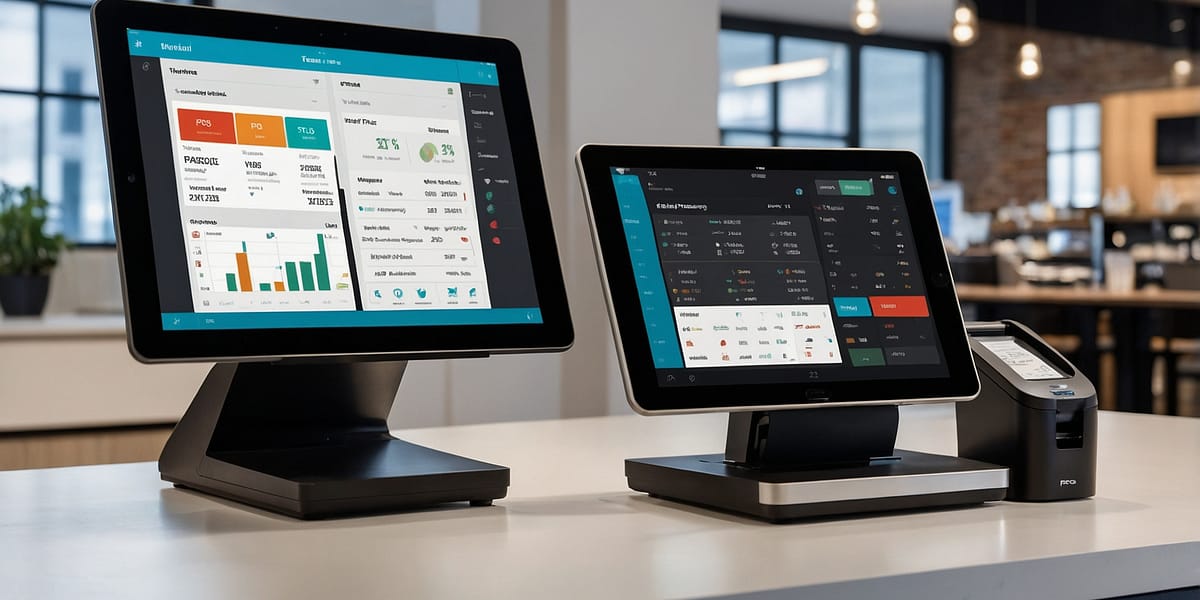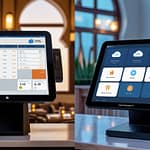POS Software 2025: iPOS vs. Foodics – Which One Wins?
As the restaurant industry becomes more competitive and technology-driven, choosing the right Point of Sale (POS) system is critical for operational efficiency and customer satisfaction. Two names that often come up in the MENA region are iPOS and Foodics. Both offer modern, robust POS solutions, but when it comes to flexibility, features, and future readiness, which one comes out on top?
In this article, we compare iPOS and Foodics across several key parameters to help businesses make an informed decision in 2025.
1. Platform Compatibility
✅ iPOS: One of the biggest strengths of iPOS is its hardware agnosticism. iPOS can be deployed across Windows, Android, and iOS platforms and supports almost all POS hardware including desktop terminals, tablets, barcode scanners, KOT printers, KDS screens, and cash drawers. This makes iPOS a scalable and budget-friendly solution for businesses of all sizes.
🔒 Foodics: Foodics is primarily an iPad-based POS system. While this simplifies the interface for some users, it significantly limits hardware compatibility and increases dependency on Apple devices. This can be a constraint for growing businesses or those looking to use existing infrastructure.
Verdict: iPOS wins for flexibility and platform independence.
2. Inventory & Finance Management
📊 iPOS: Known for its powerful back-office module, iPOS comes with advanced inventory control, recipe management, supplier management, food costing, and even full-fledged financial accounting capabilities. This eliminates the need for integrating third-party ERP or accounting software for most businesses.
📦 Foodics: While Foodics offers inventory tracking and basic cost management, it lacks depth in financial accounting and ERP-level controls. Businesses often require external tools to bridge the gap, especially when scaling operations.
Verdict: iPOS offers a more comprehensive business management suite.
3. Deployment Options
🌐 iPOS: Offers both on-premise and cloud-based deployment. Businesses can choose a SaaS model or opt for perpetual licenses based on their infrastructure and data control preferences.
☁️ Foodics: Cloud-based only. While this is ideal for businesses seeking remote access and minimal IT management, it may not be suitable for enterprises that require on-premise control due to compliance or performance needs.
Verdict: iPOS is more versatile in deployment options.
4. AI-Powered Business Intelligence
🤖 iPOS: iPOS leads the way with its new AI-powered analytics tool, “Ask Anything.” Business owners and managers can simply ask questions in natural language — like “What are the top 5 items this week?” — and instantly get visual insights in charts or tables. It even provides real-time suggestions via voice, text, or video.
💬 Foodics: Offers dashboards and standard reporting, but lacks conversational AI analytics. Custom reports may require external tools or developer support.
Verdict: iPOS is ahead with next-gen AI-driven analytics.
5. Customization and Integration
🔧 iPOS: Highly customizable with open APIs. It integrates seamlessly with ERP systems like SAP, Oracle Netsuite, Microsoft Dynamics, as well as various eCommerce platforms, payment gateways, and loyalty programs.
🔌 Foodics: Supports API-based integrations and has a growing ecosystem of partners. However, customizations may be restricted to what’s allowed within its framework.
Verdict: iPOS offers deeper customization and integration flexibility.
6. Use Case Versatility
🏪 iPOS: Suitable for all formats – fine dining, QSR, food trucks, coffee shops, bakeries, as well as multi-chain franchises. iPOS also serves retail segments like supermarkets, fashion stores, and department stores with dedicated modules.
🍽️ Foodics: Primarily focused on restaurants and QSRs. Retail operations and multi-format stores may find it lacking in features.
Verdict: iPOS is a one-stop solution for retail and restaurant operations.
Final Thoughts
Both iPOS and Foodics are strong players in the POS industry, particularly in the GCC region. However, if you’re looking for a future-ready, highly flexible, and feature-rich POS solution that adapts to your business needs — iPOS clearly has the edge.
From robust inventory and finance features to cutting-edge AI analytics, cross-platform compatibility, and deep integration capabilities, iPOS positions itself as the go-to solution for businesses aiming for growth and innovation.






Comments
Be the first to comment on this article.